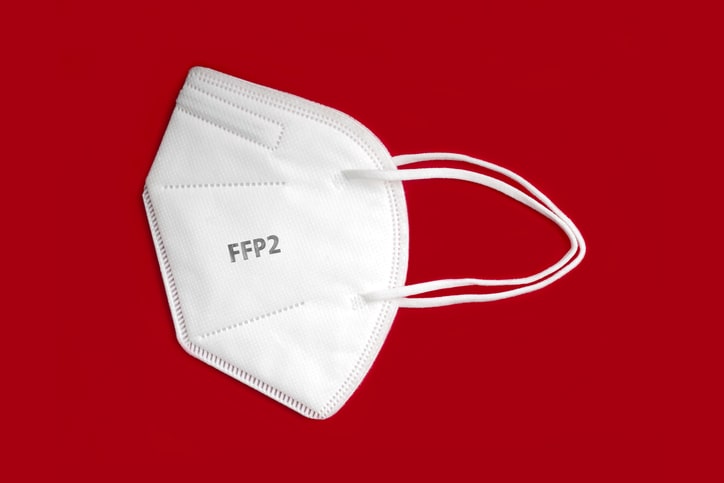
Overall, the prevalence of chronic kidney disease (CKD) among adults in the United States is approximately 15%. In younger individuals, the prevalence is comparatively lower: approximately 6% among those 18 to 44 years of age; approximately 12% among those 45 to 64 years of age; and approximately 38% for those ≥65 years of age.
Progression of CKD is associated with a decline in glomerular filtration rate (GFR). Recent data suggest that even mild reductions in estimated GFR (eGFR) are associated with adverse long-term outcomes. There are few data available on predictors and correlates of early eGFR decline in adults at low risk for kidney disease (young and middle-aged adults with a low comorbidity burden).
CKD tends to cluster within families. According to Farrukh M. Koraishy, MD, and colleagues, most individual polymorphisms explain a small proportion of risk. The limited potency of individual polymorphisms has led to the development of polygenic risk scores (PRS) that aggregate the estimated effects of numerous single nucleotide polymorphisms (SNPs) into a single genetic risk score.
The researchers conducted a study among responders enrolled in the World Trade Center (WTC) Health and Wellness Program to test the hypotheses that a PRS based on data from a large genome-wide association study of rapid decline in eGFR would be associated with early decline in eGFR, even following adjustment for traditional risk factors associated with CKD progression. Decline in eGFR was defined in separate analyses: (1) clinical (>–1.0 mL/min/1.73 m2 per year) and (2) empirical (lower most quartile of eGFR slopes).
A secondary outcome of interest was the association between PRS and individual differences in baseline eGFR, CKD stage, and trajectories of eGFR. Results of the study were reported online in BMC Nephrology [doi.org/10.1186/s12882-022-02967-5].
The WTC Health and Wellness Program is a prospective study providing annual health monitoring visits for individuals who responded to the terrorist attacks of 9/11/2001. The current study included WTC responders with genotyping data and three or more eGFR values available.
Measures of serum creatinine were gathered from blood samples collected between 2016 and 2020 during annual visits. The study observation period was ~4 years for individual responders, beginning in 2016 and ending in 2020. None of the study participants had end-stage renal disease (ESRD).
The study cohort included 1601 adult participants of European ancestry. Average baseline age was 54.12 years and 93% were male. More than 90% had a high school or college education. Mean calculated body mass index was 30.96 kg/m2; 50% were obese. Common comorbidities were hypertension (23%), diabetes (7%), and cardiovascular disease (1%). Mean baseline eGFR was 86.23 mL/min/1.73 m2 and mean final eGFR was 83.57 mL/min/1.73 m2. Mean rate of decline in eGFR was 0.75 mL/min/1.73 m2 per year. The study cohort had no patients with baseline CKD stages 4 and 5.
Based on the categorization of patients by clinical cut-off for rates of annual change, 553 (34.5%) had a decline in eGFR, while 1048 had stable eGFR. Mean rate of eGFR decline in those with a decline in eGFR was 1.47 mL/min/1.73 m2 per year; for those with stable eGFR, mean rate of decline was 0.38 mL/min/1.73 m2 per year.
Based on empirical categorization, the mean rates of eGFR change were –1.62, +0.11, and –0.75 mL/min/1.73 m2 for the lower, upper, and middle two quartiles, respectively. Compared with the reference group, patients with decline in eGFR were more likely to have diabetes.
Before and after adjustment for covariates, the PRS for GFR decline was a significant predictor of eGFR at baseline. After excluding female patients from sensitivity analyses and including only participants 45 to 65 years of age, results were similar. Other covariates associated with lower baseline eGFR were age, diabetes, and cardiovascular disease.
There was also a significant association between the PRS and more advanced baseline CKD stage, both prior to and following adjustment for covariates. Following exclusion of females and including only participants 45 to 65 years of age, results were similar. Age, diabetes, and cardiovascular disease were also associated with higher baseline CKD stage.
There was no significant association between the PRS for GFR decline and eGFR slopes in the full sample among males or those 45 to 65 years of age. There was an association between older age at baseline and a more rapid decline in eGFR.
There was significant association between the PRS and decline in eGFR, relative to no eGFR decline as defined by the clinical categories, both prior to and following adjustment for covariates in the overall cohort, following exclusion of females and for those 45 to 65 years of age. There was an association between diabetes and a higher risk of eGFR decline.
In a secondary analysis, PRS was more strongly associated with a rapid decline in eGFR compared with those showing no eGFR decline. There was also a significant association between the PRS and the lower quartile of eGFR change over time, relative to the middle quartiles; there was no significant association between the PRS and the upper eGFR quartile. Older ager was significantly associated with a lower risk of being in the upper quartile, and cardiovascular disease with a higher risk of being in the lower quartile, relative to the middle quartiles.
The authors cited some limitations to the study, including the observational design that precludes establishing causality, the inability to determine the association of the PRS with the hard renal outcomes of doubling of serum creatinine levels or ESRD, comorbid conditions being self-reported, and limiting the study to predominantly Americans of European ancestry.
In conclusion, the researchers said, “We report that genetic markers in the aggregate are associated with decline in eGFR among middle-aged, relatively healthy individuals even after accounting for traditional risk factors of CKD progression. Our findings will need to be validated in larger multi-ethnic cohorts with longer follow-up periods to provide insight into the potential associations with advanced kidney disease.”
Takeaway Points
- Researchers reported results of a study testing the hypothesis that a polygenic risk score would be associated with decline in estimated glomerular filtration rate (eGFR) in adults at low risk.
- The study cohort was drawn from the World Trade Center Health Program that provides annual health monitoring visits for individuals who responded to the attacks on September 11, 2001.
- There were significant associations between polygenic risk score and lower baseline eGFR, higher chronic kidney disease stage, and decline in eGFR relative to stable eGFR.







 © 2025 Mashup Media, LLC, a Formedics Property. All Rights Reserved.
© 2025 Mashup Media, LLC, a Formedics Property. All Rights Reserved.